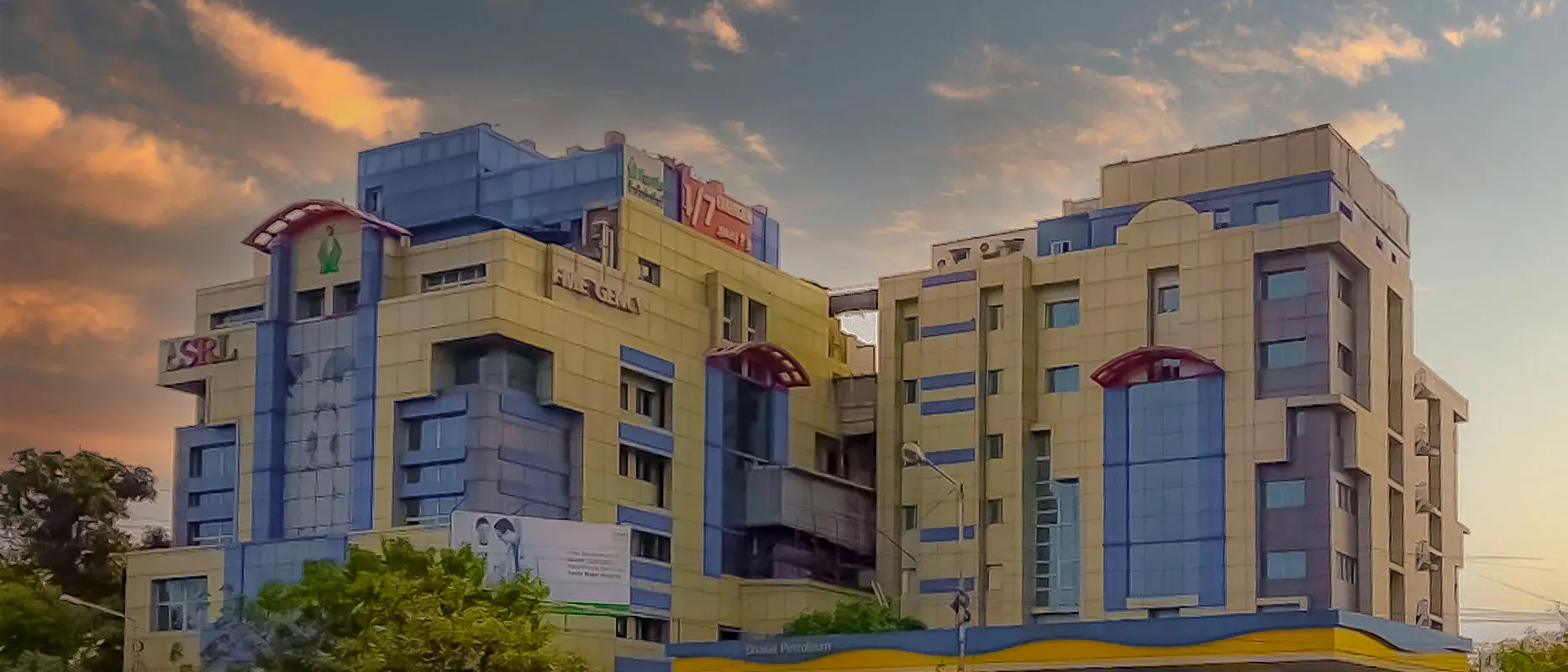Overview of Radiology Positron Emission Tomography Scan Treatment India
Positron Emission Tomography (PET) Scan is a type of imaging test which helps to diagnose different diseases occurring in the body. PET scan detects the abnormal activity in the body which occurs due to the presence of some disease. The PET scan involves the use of some radioactive substance which is injected into the blood vessel of the patient. This radioactive substance then circulates in the whole body and accumulates in the area where high activity of cells and tissue is present due to some disease. After the injection, PET scan is taken which shows the accumulation of radioactive substances in the specific area. In this way, PET scan finds out the area under disease and also the severity or extent of the disease. PET scan is usually used to find out the diseases that occur in the brain and heart. It also provides information about the cancer and its stage. PET scan also helps to plan the treatment of an individual patient according to the level of severity of the disease. PET scan also has some of the risk factors that should be avoided in order to lower the chances of complications. The procedure of PET Scan usually takes 2 hours and it does not require any recovery after the procedure.
Types of Radiology Positron Emission Tomography Scan Treatment India
Some of the types of PET scan according to the areas of body are as follow:
- FDG-PET Scan
- Cardiac PET Scan
- Brain PET Scan
- Bone PET Scan
- Gastrointestinal PET Scan
- Thyroid PET Scan
- Infection Imaging PET Scan
- Whole-Body PET Scan
FDG-PET Scan
This is the most common type of PET scan. It uses a radioactive substance which is known as glucose tracer (FDG). This radioactive substance measures the activity in cells. It is widely used in detection of cancer and its stage.
Cardiac PET Scan
Cardiac PET scan is the diagnostic method in which the activity of the heart is examined and also the blood supply of the heart. It can provide information on the abnormal blood flow to the heart.
Brain PET Scan
Brain PET scans use radioactive substances that highlight areas of the brain with abnormal activity. This method is widely used in the diagnosis of the conditions of the brain.
Bone PET Scan
The PET scan to diagnose the conditions of bone are also used in the diagnostic procedures by the health care professionals.
Gastrointestinal PET Scan
These scans can examine the conditions of the digestive system and also describe the level of severity of the disease.
Thyroid PET Scan
Thyroid PET scans help to examine thyroid gland to detect thyroid cancer by using radioactive substances.
Infection Imaging PET Scan
These scans can identify areas of infection by using radioactive substances that accumulate in infected tissues.
Whole-Body PET Scan
This scan covers the entire body and is often used in cancer staging to check for the spread of cancer to different organs and tissues.
Procedure of PET Scan
The general overview of the PET Scan procedure is described below:
Radioactive substance Injection: A small amount of a radioactive substance is injected into a vein in the arm of the patient. This substance is typically a type of sugar and different tissues in the body absorb it according to the activity of cells.
Scanning: The patient will be positioned on a flat table that slides into the PET scanner. The scanner detects the radioactive emissions from the radioactive substance within the body and creates images that show the distribution of that substance. Patients need to lie still during the scan which can take 30 minutes to two hours.
Image Interpretation: The collected data is processed by a computer to create detailed images of the internal structures of your body. Radiologists or nuclear medicine specialists analyze these images to identify any abnormal areas with high uptake of radioactive substances.
Results and Diagnosis: The doctor examines the results of PET scan and makes a diagnosis according to that. It can help diagnose conditions like cancer, evaluate the extent of disease, monitor treatment effectiveness, or assess other medical issues that usually depend on the purpose of the scan.
Diagnosis of Radiology Positron Emission Tomography Scan Treatment India
Cost of PET Scan Procedure in India
The cost of PET Scan procedure in India ranges from 266 USD to 355 USD. The cost can vary according to the type of area involved in the procedure or whole body PET scan procedure is required. The cost can also vary according to the complications of each patient.
| Treatment Costs in India |
Min in USD |
Max in USD |
| PET Scan |
266 USD |
355 USD |
Symptoms and Risk factors
Some of the conditions where PET scan can be used are as follow:
- Brain tumors
- Lung cancer
- Liver cancer
- Pancreatic cancer
- Kidney cancer
- Cancer Staging
- Heart Assessment
- Neurological Disorders
- Bone Disorders
- Prostate Cancer Evaluation
- Gastrointestinal Conditions
- Thyroid Nodule Assessment
- Infection Detection
- Whole-Body Cancer Staging
Risk Factors of PET Scan
Some of the risk factors that are associated with PET Scan are as follow:
Radiation Exposure
The radioactive substances used in the procedure of PET Scan can be harmful for some patients and may cause nausea, vomiting and fatigue.
Infertility
Excess use of radiation can destroy normal cells both in male and female reproductive system and may lead to the problems of infertility.
General Side Effects
Some patients experience the symptoms of headache, abdominal pain, constipation or diarrhea but it may not present in all patients.
Kidney Disorders
Some patients may experience the symptoms of back pain due to the dysfunction of the kidney. This is most commonly present in patients with already existing kidney diseases.
Allergic Reactions
Some patients are allergic to radioactive substances used in the procedure. These patients experience the symptoms of skin rash and itching.
Irritation and Tiredness
Some patients show irritation and extreme tiredness after the procedure. These complications can affect the daily activities of patients.
Existing Medical Condition
PET scan procedure may cause some of the complications in patients with an already existing medical condition. These complications can vary according to the type of disease and the condition of each patient.
Decrease Blood Count
The radioactive substance can also affect the blood cells in the body and may cause bleeding, infection and decrease blood cells production.
Top Hospitals for PET Scan in India
Shaping the future of the healthcare institution and establishing the path to accomplishment.
Top Doctors for PET Scan in India
Empower your Health with the Expertise of Leading Medical Professionals.
Dr. Anshu Rajnish Sharma
Department of Nuclear Medicine
Consultant
Book Appointment
Dr. Kamal Verma
Department of Radiation Oncology
Senior Consultant
Book Appointment
Dr. Sirajudeen
Department of Cardiac Sciences
Associate Consultant Non Invasive Cardiology
Book Appointment
Dr. Himanshu Gupta
Department of Interventional Cardiology
Consultant
Book Appointment
Treatment Costs for PET Scan
Be the change and be an opportunist in transforming healthcare.
How it's Works
Guiding your Journey from Discovery to Treatment Planning and Beyond.
Discovery
Get a consultation to discover about your treatment
Pre-Treatment
Admission to the best hospital and all pre-treatment facilities
Post Treatment
Get post-treatment follow-up care with medicine fulfillment
Treatment Planning
Hassle-free treatment planning with package & cost estimations
in-treatment
world-class quality procedures and equipment for treatment


























